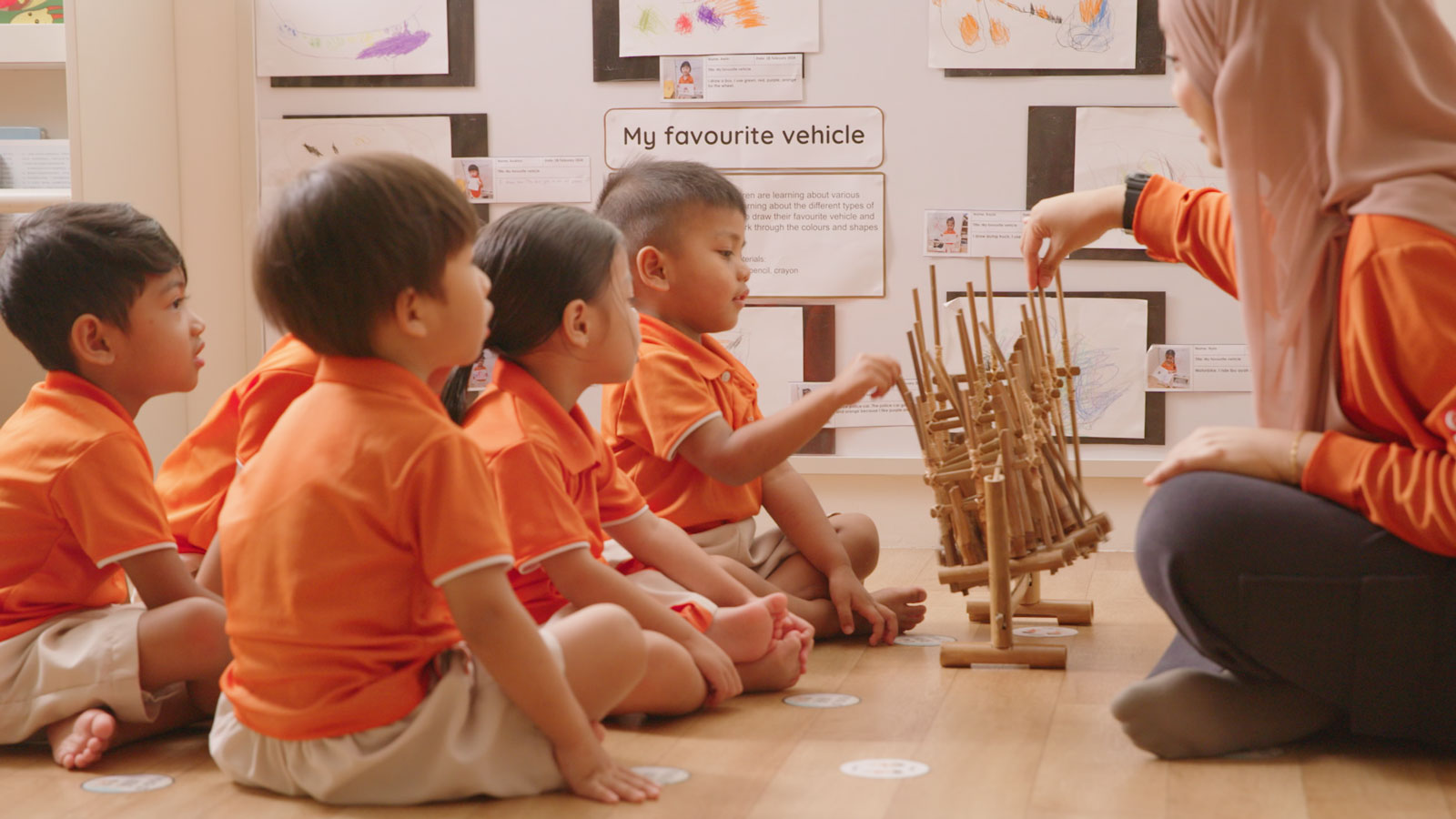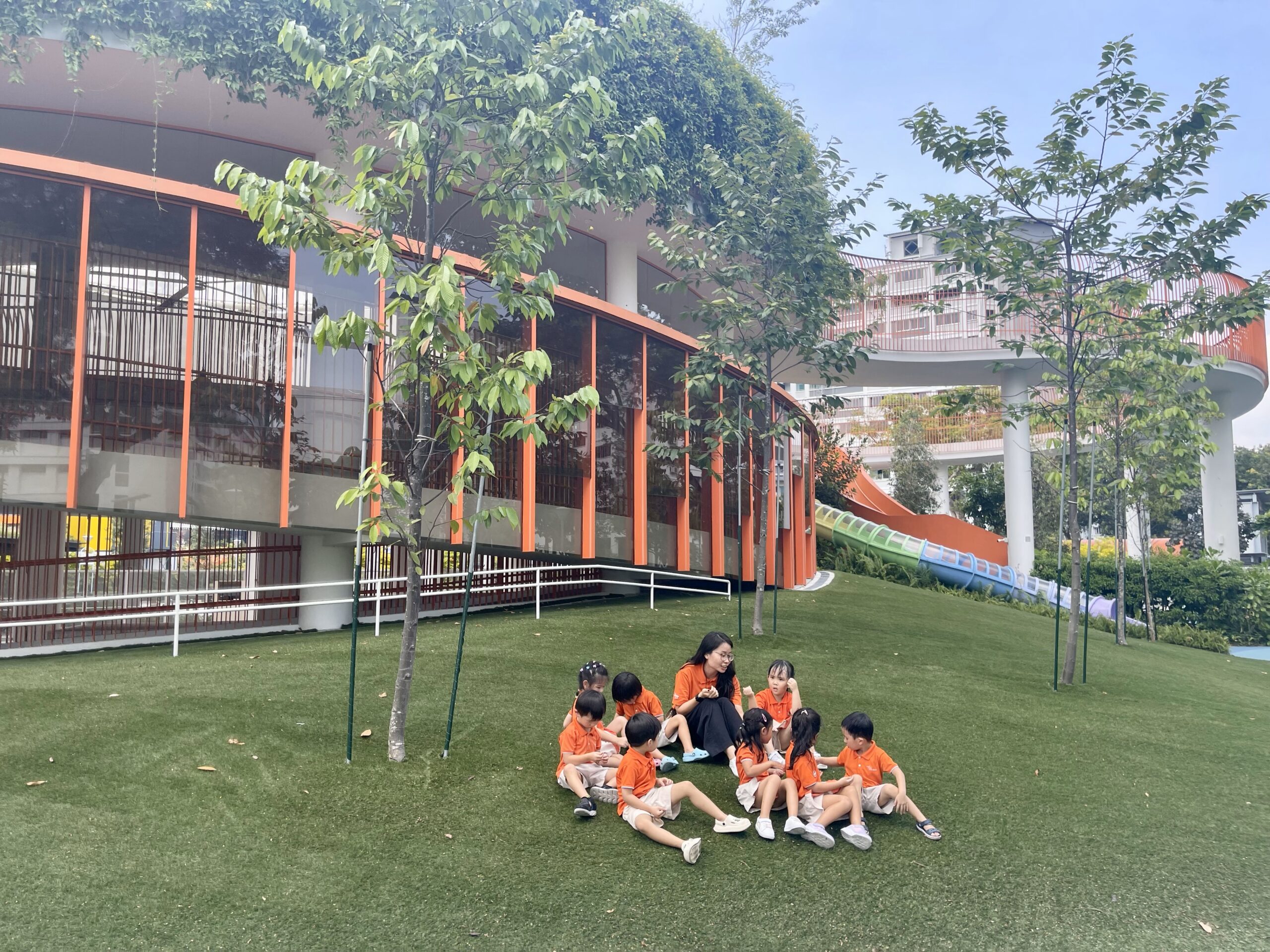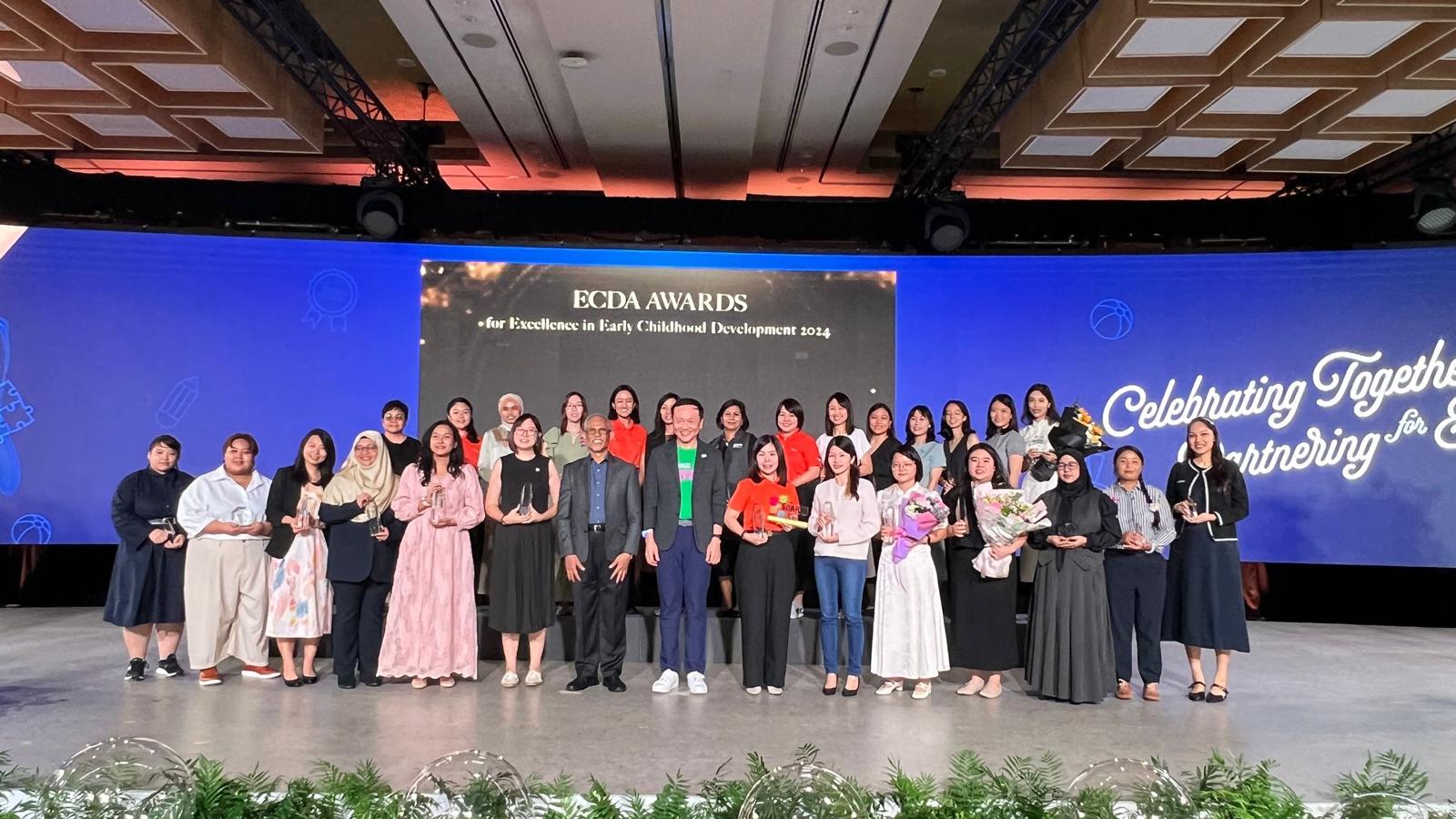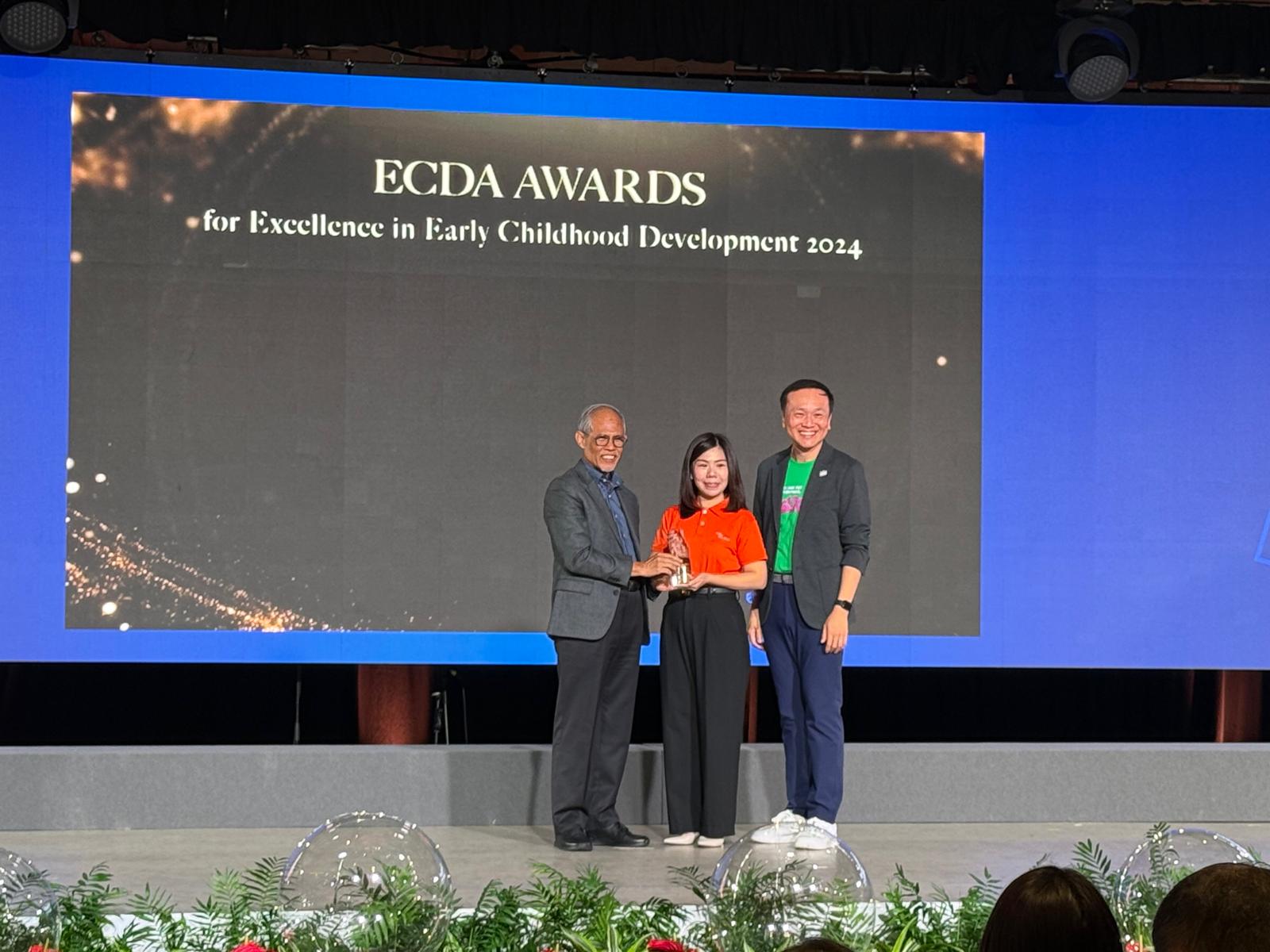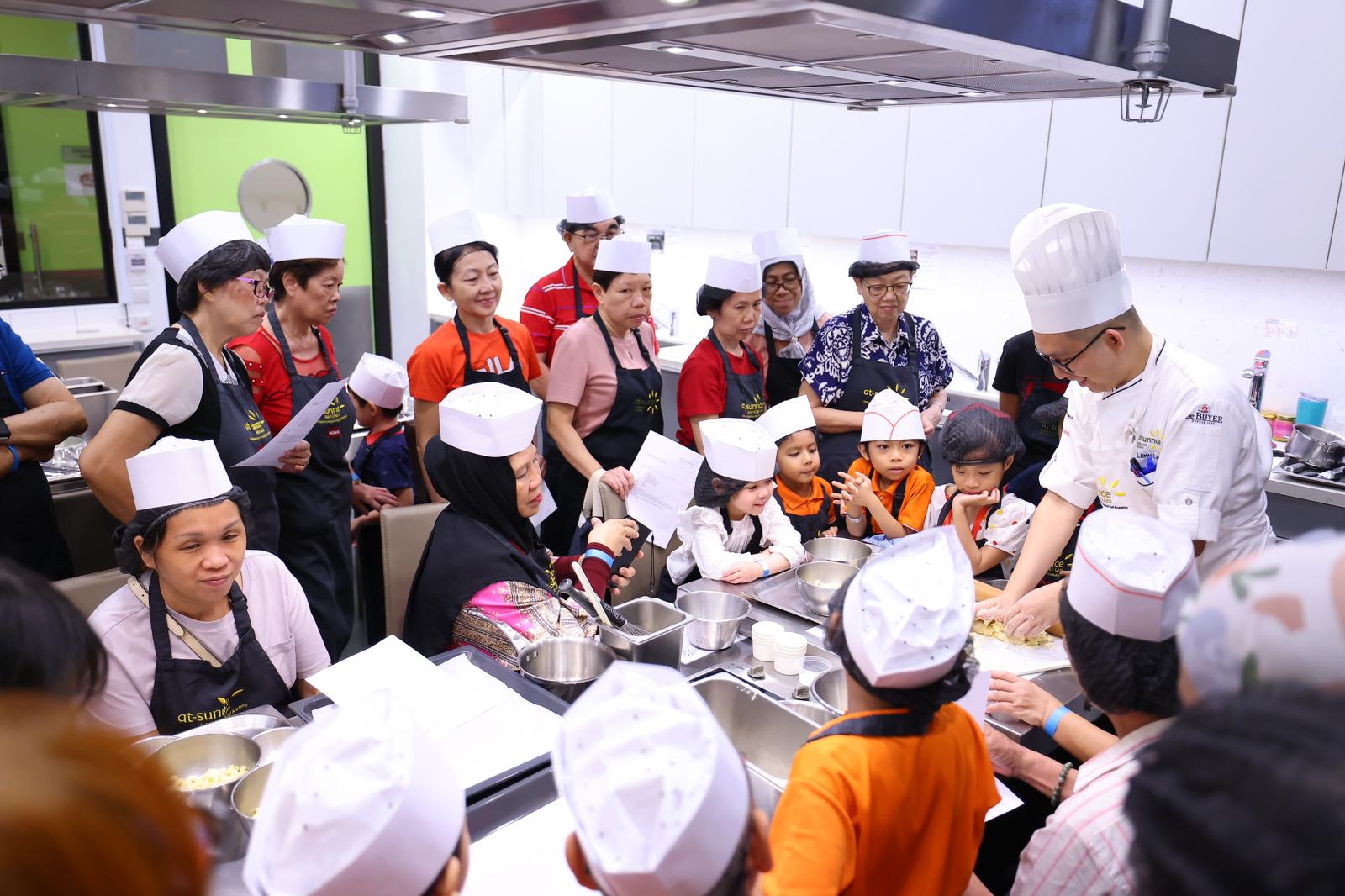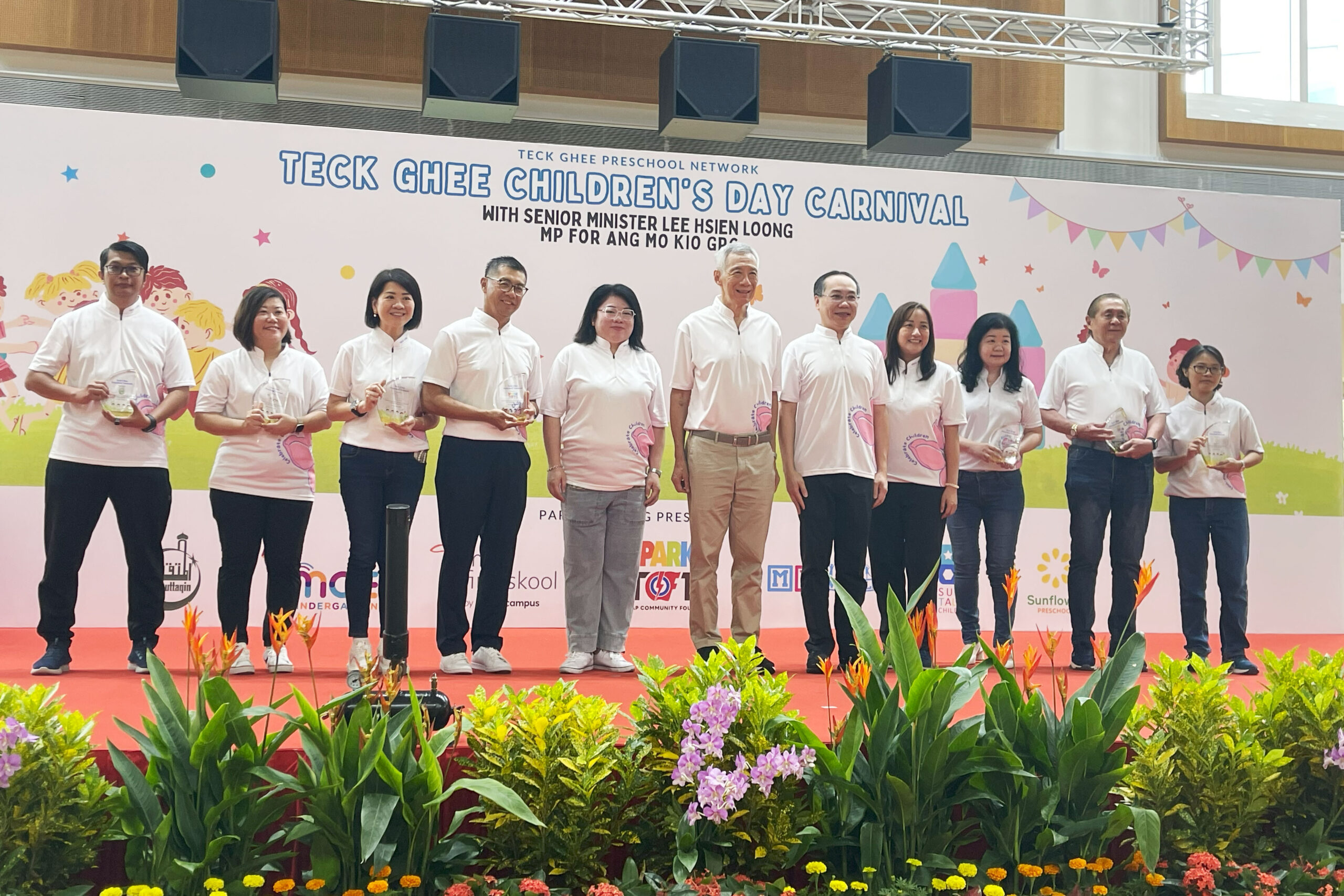![]()
![]()
Navigating Childcare Subsidies and Financial Assistance in Singapore
PUBLISHED
30 May 2024
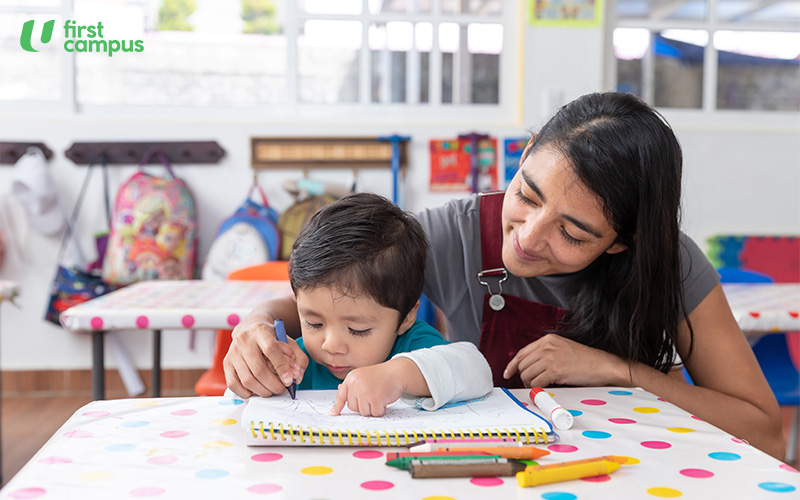
Are you a parent exploring the possibilities of enrolling your little ones in a childcare centre? If so, you might have already realised that early childhood education fees in Singapore can be a significant financial commitment. But fret not, as we are here to guide you through the maze of childcare subsidies and financial assistance available.
In this article, childcare includes preschools, kindergartens, nursery, infant care and childcare centres. To learn more about the differences, visit this article here.
Keep reading to find out more.
Introduction to Childcare in Singapore and Its Fees
What does childcare in Singapore entail?
Childcare in Singapore is more than just a place where parents drop off their children while they go to work. It plays a crucial role in nurturing and shaping young minds during their formative years. Let us take a closer look at what childcare entails and why it is essential.
Early childhood education
Childcare centres in Singapore are not merely babysitting services; they are centres for early childhood education. These centres include MOE Kindergartens, Anchor Operators and Partner Operators, and are designed to provide a structured and enriching environment where young children can learn and grow. Trained childcare teachers, often with specialised qualifications in early childhood education, are responsible for guiding children through various learning experiences.
Holistic development
Childcare in Singapore also focuses on promoting holistic development. It is not just about academic learning; it encompasses social, emotional, physical, and cognitive development as well. Through play-based learning, children are encouraged to explore, experiment, and interact with their peers, fostering crucial social and emotional skills.
Language and communication
Language development is a significant aspect of attending childcare in Singapore. Children are exposed to a language-rich environment, where they engage in conversations, listen to stories, and sing songs. This exposure helps enhance their vocabulary and communication skills, setting the stage for a strong foundation in language learning.
Cultivating independence
Childcare teachers also encourage children to become independent and self-reliant. They are taught simple tasks such as dressing themselves, cleaning up after playtime, and taking care of their belongings. These skills are essential for building confidence and preparing children for more formal educational settings.
How much are childcare fees in Singapore?
Childcare fees in Singapore can vary depending on the type of childcare centre, its location, and the age of your child. Although the monthly fees of sending your child to preschool have fallen by up to $36 since January 2023, the overall costs can still place considerable strain on a family’s budget, leaving many parents wondering why childcare expenses tend to be higher compared to primary school.
So, why is childcare more expensive compared to primary school?
The cost disparity between childcare and primary school education in Singapore can be attributed to several factors. Firstly, the staff-to-child ratio in childcare centres is typically lower than in primary schools, as young children require more individual attention and care.
Additionally, childcare centres invest in providing a safe and nurturing environment, which includes age-appropriate facilities such as play areas and learning resources like educational toys to meet the developmental needs of younger children. These expenditures contribute to the overall cost of childcare services.
Full-day childcare programmes in Singapore are also designed to cater to the needs of working parents, offering extended hours of operation on weekdays from 7 am to 7 pm. This duration is notably longer when compared to primary school hours and plays a significant role in contributing to the overall cost of childcare services.
All About the Childcare Subsidies and Financial Assistance Available in Singapore
From basic subsidies to special approval categories, this guide is your key to understanding how to make quality childcare more accessible and affordable for your family.
Government Subsidies
The Basic Subsidy is a financial assistance scheme that aims to help families manage the costs of sending their children to preschool. Whether you opt for infant care or a childcare centre, the subsidy provides support across various types of preschools, ensuring that parents have options that suit their preferences and needs.
Eligibility for the Basic Subsidy is primarily based on the household income of the family. The subsidy is targeted at families from various income groups, with higher subsidy rates provided to families with lower incomes. This ensures that families facing financial constraints can access childcare services without compromise.
Eligible families can receive up to $600 per month for full-day infant care and up to $300 per month for full-day childcare services. Working mothers in Singapore with a gross monthly household income of $12,000 and below have an extra layer of financial assistance in the form of an Additional Subsidy. This additional support is on top of the Basic Subsidy and is specifically aimed at easing the financial strain on lower-income families.
In the pursuit of ensuring that every child in Singapore has access to quality early childhood education, the government recognises that certain unique circumstances require special consideration.
Inability to work due to certain circumstances
In situations where applicants are not currently employed due to active job-seeking, pregnancy, or being medically unfit to work, the Special Approval category offers an avenue to access higher subsidies for early childhood education.
Non-parent caregivers
The Special Approval category extends its support to non-parent caregivers who are responsible for the child’s care and well-being. This includes grandparents, legal guardians, foster parents, and children’s homes. Acknowledging the vital role these caregivers play in a child’s life, the higher subsidies under Special Approval aim to ease the financial burden and ensure that children receive the nurturing environment they deserve.
Children under HDB’s Public Rental Scheme or ComCare Assistance
Children who are beneficiaries of HDB’s Public Rental Scheme or recipients of ComCare Short-to-Medium Term Assistance (SMTA) or Long-Term Assistance (LTA) are eligible to apply for higher subsidies under Special Approval. This support aims to bridge the gap and provide children from disadvantaged backgrounds with equal opportunities for early childhood education.
Find out more about government subsidies here.
Baby Bonus Scheme
Welcoming a new member into the family is undoubtedly a momentous occasion filled with joy and excitement. In Singapore, the government celebrates this special milestone by offering vital financial support through the Baby Bonus Scheme.
Eligible parents can receive a series of cash gifts and benefits as follows:
Cash gift
Upon completing the birth registration of your child, you can expect to receive the Cash Gift within 7 to 10 working days, or shortly after completing the online form, whichever is later. This ensures that you can promptly access the funds to meet your baby’s immediate needs.
Child Development Account (CDA)
As a parent, ensuring a secure and promising future for your child is undoubtedly a top priority. The CDA is a special savings account designed to support you in this endeavour. It offers you a remarkable span of 12 years to save for your child’s future and you will have the flexibility to open an account with DBS/POSB, OCBC or UOB.
One of the most advantageous aspects of the CDA is the government’s matching contributions. Within two weeks, the government matches your savings in the CDA, significantly boosting the funds and accelerating your child’s journey towards a promising future.
The savings are intended to cater to the educational and healthcare expenses of your child and can be used at Baby Bonus Approved Institutions such as childcare centres, kindergartens and hospitals.
Find out more about the Baby Bonus Scheme here.
Kindergarten Fee Assistance Scheme (KiFAS)
KiFAS is a government initiative designed to provide financial assistance to families with children attending eligible kindergarten programmes in Singapore. With KiFAS, families can access additional support in managing their child’s kindergarten fees, ensuring that cost is not a barrier to quality early childhood education.
KiFAS extends its support to families with varying income levels. If your gross monthly household income is $12,000 or below, or the per capita income is $3,000 and below for larger families, you can consider applying for this financial assistance.
Applying for KiFAS is straightforward. You can submit your application directly to the kindergarten your child is attending or planning to attend. The school’s management will then assist with the application process and help determine the appropriate level of fee assistance for each eligible family.
The Special Approval category offers a higher subsidy level for families facing unique circumstances too.
Non-parent caregivers
The Special Approval category extends its compassionate support to non-parent caregivers who play a significant role in a child’s life. Whether they are devoted grandparents, legal guardians, foster parents, or dedicated children’s home staff, these caregivers are eligible for higher subsidies.
Children under HDB’s Public Rental Scheme or ComCare Assistance
Children who are beneficiaries of HDB’s Public Rental Scheme or recipients of ComCare Short-to-Medium-Term Assistance (SMTA) or Long-Term Assistance (LTA) receive automatic qualification for maximum preschool subsidies upon applying for Special Approval.
Find out more about KiFAS here.
KiFAS Startup Grant (SUG)
Tailored for families facing financial constraints, the KiFAS SUG is a beacon of hope, providing a helping hand to ensure every child has access to quality early childhood education in Singapore. This can assist in covering the expenses associated with enrolling your child in kindergarten, encompassing the registration fee, deposit, school uniform, insurance, educational materials, and supplementary fees.
It is applicable to Singapore Citizen children from families with a monthly gross income of up to $1,900 or a gross per capita income of up to $650. These income thresholds are carefully set to encompass families with limited financial means, enabling them to benefit from this much-needed assistance.
Every family’s circumstances are unique and the SUG recognises this by adopting a case-by-case assessment approach. This personalised evaluation ensures that families receive an appropriate level of support, addressing their individual needs in a fair and equitable manner. You can expect to receive a maximum grant of $240 per year.
Simply fill in the KiFAS Application Form along with the necessary supporting documents. The application should be submitted to the Early Childhood Development Agency (ECDA) through your child’s kindergarten.
Find out more about KiFAS SUG here.
KidSTART Family
The KidSTART initiative targets families with children aged six and below, and has a gross monthly household income of $2,500 and below, or per capita income of $650 and below. As a KidSTART Family, you gain access to a wealth of support, resources, and opportunities that enrich your child’s early development journey and strengthen family bonds.
Welcome pack
Upon enrollment, each KidSTART Family receives a thoughtfully curated welcome pack. These packs consist of age-appropriate books, toys, and wellness items, setting the stage for exciting learning experiences and promoting the overall well-being of your child.
Learning packs
To further stimulate your child’s creativity and imagination, learning packs that are tailored to each enrolled child will be provided. These packs include age-appropriate art and craft materials, books, and toys that inspire exploration and growth.
KidSTART events and carnivals
Your family will be invited to KidSTART events and carnivals, where you can bond with other families in the community. These fun-filled gatherings foster a sense of belonging and create cherished memories for your child.
Fresh food packs
Good nutrition is vital for your child’s growth and that is why fresh food packs consisting of a variety of fresh vegetables and fruits are provided, supporting your family’s well-being and ensuring access to wholesome meals.
Free resources
As part of the KidSTART Family, you gain access to a wealth of free resources on early childhood development, parent-child interactions, and health and nutrition information. These resources empower you with knowledge and insights to support your child’s growth and development.
Supplementary programmes
Enhancing parent-child interactions and family functioning is at the heart of KidSTART’s mission. As a KidSTART Family, you have access to supplementary programmes that strengthen family dynamics, promoting a nurturing and supportive environment for your child’s growth.
Find out more about being a KidSTART Family here.
Child Concession Card
Childcare expenses can add up, placing financial strain on families. To alleviate this burden, the Child Concession Card comes to the rescue, offering a valuable opportunity to reduce costs while ensuring your child enjoys safe and convenient transportation to and fro the childcare centre.
Offered by TransitLink, the card provides children 0.9m and above in height, below seven years old and not studying in a primary school free travel.
Find out more about the Child Concession Card here.
Parent’s Guide to Calculating Childcare Subsidies
Understanding the subsidies you are eligible to receive
As a parent seeking the best childcare options in Singapore for your little one, navigating the world of subsidies and financial assistance can be overwhelming. However, understanding and determining your eligibility for childcare subsidies is crucial in making informed decisions about your child’s early education.
When it comes to assessing childcare subsidies, consulting the right people and utilising the right tools can be game-changers.
Seek expert guidance
Before making any decisions about childcare subsidies, it is essential to consult the right people who can provide accurate and up-to-date information. Check that you meet the criteria before enrolling but if you are still unsure, reach out to your preferred childcare centre for assistance. They can help you understand the eligibility criteria, required documentation, and the application process.
Use the ECDA subsidy calculator
The ECDA Subsidy Calculator is a powerful tool that simplifies the subsidy assessment process. By inputting relevant details such as your household income and programme and service you require, the calculator generates an estimate of the childcare subsidies you may be eligible for. This empowers you to plan your finances effectively and explore various subsidy options available.
NTUC First Campus’s Initiatives to Leave No Child Behind
Financial support
At NTUC First Campus, we strongly believe in the power of education and thus, have initiatives in place to support low-income families in providing quality early childhood education for their children. Over the years, the impact of these transformative programmes has been profound, benefiting numerous families across Singapore.
Sponsored NTUC Membership
To extend a helping hand to low-income families, NTUC First Campus provided sponsored NTUC Memberships to over 3000 families a year, on average. This membership opened the door to a host of benefits and privileges, easing financial burdens and empowering families to access quality early childhood education for their children.
Financial Aid from the Bright Horizons Fund
The Bright Horizons Fund was instrumental in providing financial support to over 1000 children annually on average from low-income families. This initiative gave children access to childcare by offering assistance for essential schooling needs, including uniforms, field trip expenses, and K2 graduation costs. Additionally, it covers the expenses associated with starting school and provides monthly subsidies for school fees.
Top-up to CDA
The CDA is a valuable savings account designed to support a child’s educational and healthcare expenses. The top-up of $400 for over 500 children yearly on average offered by NTUC First Campus and OCBC under the OCBC-NTUC First Campus Bridging Programme amplified the benefits of the CDA, strengthening its impact on children’s educational needs.
Find out more about our financial support schemes here.
Social support
At NTUC First Campus, our commitment to empowering families in need goes beyond education. Together with KidSTART, we provide comprehensive social support, ensuring that every child receives the care and attention they deserve.
Our dedicated Child Enabling Executives are at the forefront of this mission. They work hand in hand with My First Skool teachers, social workers, and community stakeholders to address the unique needs of each child.
Through collective effort and unwavering dedication, we strive to create a society with KidSTART where every child is given the opportunity to thrive and flourish, setting the stage for a brighter and more promising future for all.
Find out more about our social support initiatives here.
Learning and development support
Our team at NTUC First Campus firmly believes in providing comprehensive support to ensure every child’s holistic development. Through various initiatives and programmes, we strive to create a nurturing and inclusive environment where children can thrive and reach their full potential.
Read-to-REACH (RTR) Programme
For K1 children struggling with English literacy, the RTR Programme offers vital support. This programme has shown impressive learning outcomes, with over half of the K1 children attending RTR no longer needing literacy intervention in K2. The improved confidence in spoken and written English prepares children for formal schooling with a strong foundation in language.
Classroom Support Programme (CSP)
Learning Facilitators (LFs) provide in-class support to N2 to K2 children with mild learning needs in language, literacy, and numeracy. Using engaging techniques, CCFs conduct small-group activities to strengthen children’s understanding in the classroom, promoting a positive and enriching learning experience.
Focused Language Assistance in Reading (FLAiR) Programme
The FLAiR Programme was developed by the Ministry of Education (MOE), providing focused support for K2 children struggling with English language and literacy. This initiative aims to build a strong foundation in English language skills during early childhood education and foster a positive disposition towards learning.
Development Support-Learning Support (DS-LS) Programme
Our DS-LS Programme caters to K1 and K2 children requiring low levels of early intervention support. Learning Support Educators collaborate with therapists to design Individualised Educational Plans and deliver appropriate interventions in areas such as speech and language, social skills, motor skills, behaviour, and literacy.
Integrated Support Programme (InSP)
Implemented at two My First Skool childcare centres, InSP adopts differentiated teaching practices to support children with developmental needs. Early intervention professionals and early childhood educators plan and teach classes together, tailoring lessons to children’s learning abilities. Visiting allied health professionals also provide specialist support when necessary.
Find out more about our learning and development programmes here.
Health and Wellbeing support
At NTUC First Campus, we believe that supporting the health and well-being of our families is vital for creating a thriving community.
Infant Nutrition Programme (INP)
INP provides essential support to low-income families, ensuring that their children receive proper nutrition for healthy development. Beneficiaries receive cash vouchers to purchase nutrition products suitable for each stage of their children’s growth, giving them access to the necessary items for their well-being.
Food Pack Programmes
In partnership with Food From the Heart (FFTH), NTUC First Campus extends support to needy families through the School Goodie Bag Programme. This initiative provides food rations, contributing to the nutritional needs of families facing financial challenges.
You Are Special! (YAS)
NTUC First Campus sees every child as a unique person and provides birthday cakes to children from low-income families on their special days.
You’ve Got Talent (YGT)
YGT provides opportunities for young children from low-income families to explore and enjoy various sports and arts programmes that they may otherwise not experience. These learning experiences provide an added boost of confidence, giving them the chance to express themselves creatively and discover their hidden talents.
Caregiver Conversations
This initiative aims to build resilience in parents and equip them with skills to manage anger, defiance and aggression in children. This helps them to better support their children’s development.
Healthy Body, Healthy Mind (HBHM)
The HBHM series aims to share tips and strategies to develop good eating habits in children and help caregivers take care of their well-being. Fun interactive workouts are also included.
CapitaLand-Bright Horizons Fund Ready-For-School Programme (RFS)
The RFS aims to help children from low-income families be ready for primary school by providing graduating K2 children with school bags and schooling essentials in preparation for formal education.
Find out more about our health and wellbeing support here.
Frequently Asked Questions About Childcare Subsidies Answered
Yes, in some cases, non-parent caregivers, such as grandparents or legal guardians, may be eligible for childcare subsidies under Special Approval. Other eligibility criteria may apply in such cases.
You can visit the Ministry of Social and Family Development (MSF) and ECDA websites for comprehensive information about childcare subsidies and other support measures available for families in Singapore.
Yes, you can receive subsidies for multiple children in the same childcare centre, provided they meet the eligibility criteria.
To apply for the childcare or infant care subsidy, submit your application directly to the chosen childcare or infant care centre. Working mothers are eligible for either $600/month for infant care or $300/month for childcare.
Additional childcare subsidy is also available, provided you are a working mother with a minimum employment of 56 hours per month. Your gross monthly household income should not exceed $12,000, or the per capita income should be $3,000 or below for larger families.
How to apply for subsidies
We understand that childcare expenses can be a significant concern for many families, especially those with limited financial means. However, with NTUC First Campus’ unwavering dedication to supporting low-income families, access to quality early childhood education is within reach.
If you have any questions regarding how to apply for a childcare subsidy, email [email protected] or visit our Subsidies page.
My First Skool and Little Skool-House offer top-notch early childhood education, enriched with a plethora of engaging activities and family bonding opportunities.
To find a NTUC First Campus preschool near you, simply visit our Preschool Locator here. To schedule a visit with My First Skool, please visit this link. To schedule a visit with Little Skool-House, please visit this link.
Topics:
Share this article
Newsroom
Stay informed on the latest news and happening in NFC and the industry

